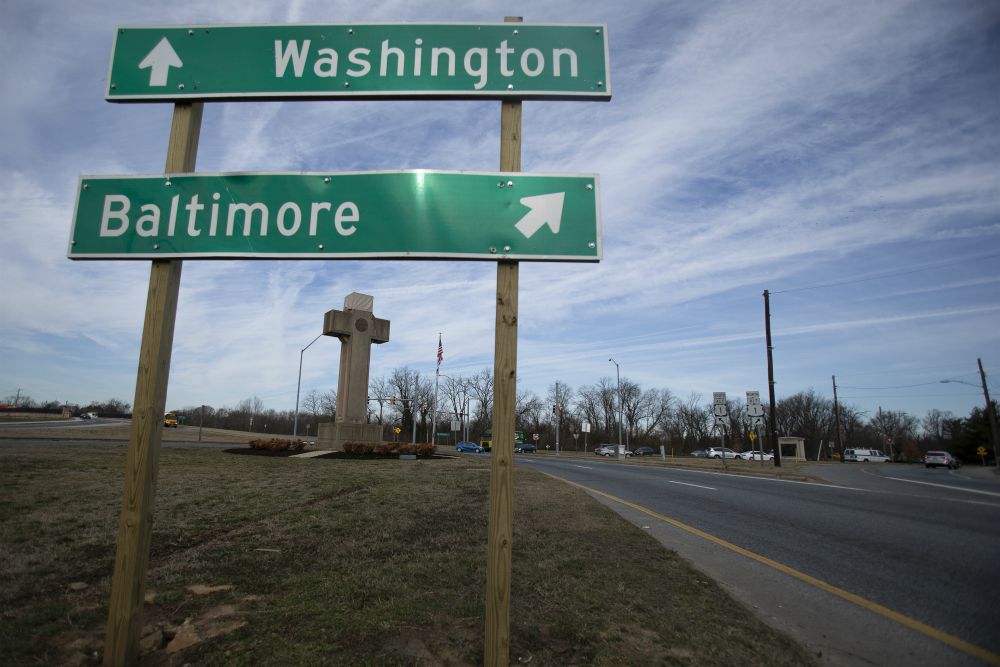
Cross-shaped World War I memorial in Bladensburg, Maryland, Feb. 26 (CNS/Tyler Orsburn)
In the Supreme Court decision released June 20 that Bladensburg, Maryland, could maintain a cross standing above a highway as a memorial to 49 World War I servicemen from that area who were killed in the "war to end all wars," Justice Ruth Bader Ginsburg delivered an unlikely catechetical lesson.
Dissenting from the 7-2 ruling, she made the point that the cross is not a bland, secular, unifying symbol extolling patriotism. It is, rather, as she put it, "the foremost symbol of the Christian faith." Quoting a Baptist group, which argued for a strict interpretation of church/state separation, she noted that the cross is a sign of the "central theological claim of Christianity: that the son of God died on the cross, that he rose from the dead, and that his death and resurrection offer the possibility of eternal life."
Written in the often dry prose of Supreme Court legal dissents, Ginsburg's description of the role of the cross in Christian faith is startling and accurate. It is about as good a summary of the Christian mystery as one is likely to find in such a setting.
She noted that many of the Christian soldiers honored at the Maryland memorial saw their sacrifice in light of their Christian faith, identifying the possibility of death for what they perceived as a noble cause with that of the sacrifice of their Savior.
By contrast, Justice Samuel Alito, a Catholic, defending the court's ruling, emphasized the secular nature of the cross.
"That the cross originated as a Christian symbol and retains that meaning in many contexts does not change the fact that the symbol took on an added secular meaning when used in World War I memorials," wrote Alito.
Advertisement
He added that the cross, in its secular incarnation, can be seen as part of "a symbolic resting place for ancestors who never returned home, a place for the community to gather and honor all veterans and their sacrifices for this Nation, and a historical landmark."
For faithful Christians, Ginsburg's definition is, of course, the most doctrinally correct. That it took one of the court's Jewish justices to recognize this is an irony of our time.
There is much to be said for keeping the Bladensburg cross, which has dominated a median of a highway in the suburbs of Washington for decades. Alito's best argument is that the disruption of removing the cross would be akin to changing the names of Los Angeles or San Diego because of their overt Christian overtones.
But culture warriors need to be careful. They might very well get what they ask for. In a culture where Christian symbolism is endangered by appeals to bland unity — the attempt to make crèche scenes simply a community decoration is another example — runs the risk of making Christianity a comfortable civic myth.
The cross is not just a unifying patriotic symbol. It means so much more, and should not be devalued by appeals to make it more attractive to a society that prefers its religious symbols to be muted and non-threatening. Thank you, Justice Ginsburg, for the catechetical lesson.




